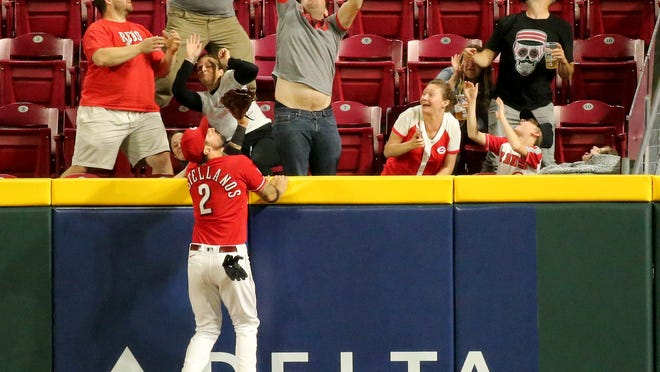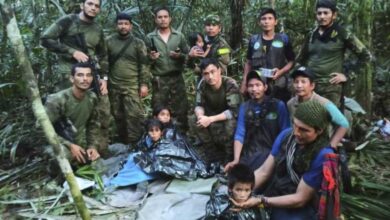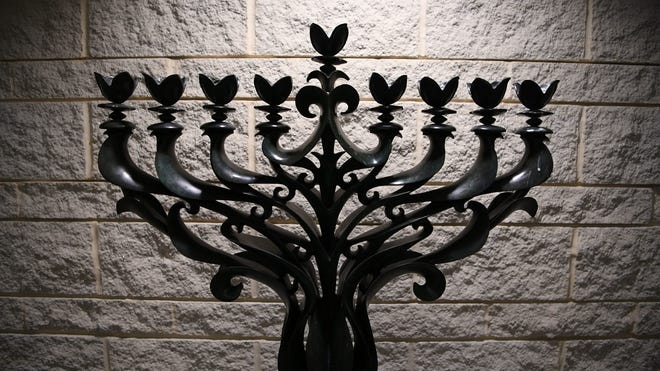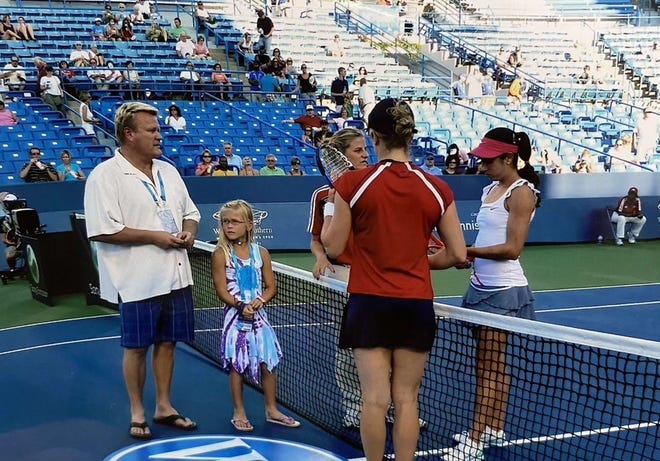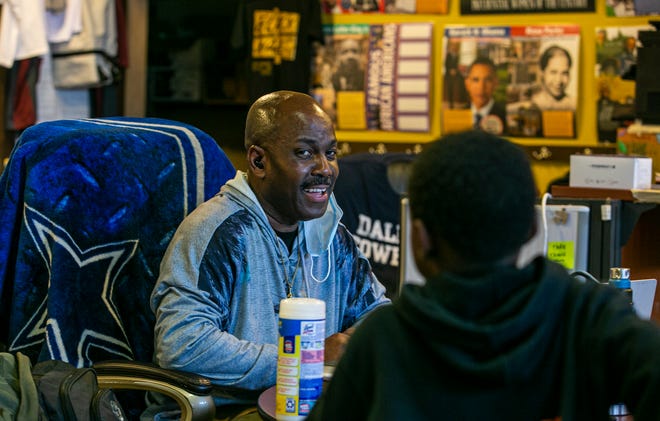

This year in Hamilton County, 15 juveniles have been charged with murder, more than were charged in the last four years combined. Why the increase? 'Kids Who Kill,' The Enquirer's series on juvenile violence, continues with this conversation.
Rodney Christian is the director of a recreation center at Third Presbyterian Church in East Westwood. The center hosts 20 to 30 kids of all ages on weekdays after school and on the weekends. He started the center with a friend 30 years ago to give kids a place to talk, hang out and connect with mentors. Christian has also been the president of the East Westwood Community Council for eight years.
Enquirer reporter Erin Glynn: We've seen this increase this year in teens being charged with murder. Have you noticed more kids getting involved in crime in the last year?
It definitely went up. With a lot of our kids who come here, we try to talk about those things as much as possible, anytime something goes on. We educate, we don't try to ignore it, we really try to talk to them about it.
Are you talking about the shootings?
I believe these people who do a lot of these shootings – they have an audience and the audience is building them up to do what they do. And that audience can take them down by not supporting them, not giving them ears, stepping away from them, and saying 'I don't want to be part of that.' That's what I try to teach our kids here.
When there is a crime or shooting in East Westwood, I actually shut down. If we're outside playing ball, I say we're shutting down. It doesn't have to happen in this area. It's proving a point to the people wherever they are and wherever they're shooting, you just caused the kids not to play now. (When that happens) I don't just shut down, we get everybody gathered in a room and discuss this stuff and why we need to stop this violence.
I'm big on not wasting our gatherings. Leaders have to step up and support that we have to stop playing and talk, because (the kids) have to go back into some dark place where negative things are going on. We need to prepare them before they get there, so they can start thinking 'I remember we had this talk where they were saying that's wrong.' That's small steps to change this violence.
Why do you think the violence is happening more often now? Do you think social media is contributing to that audience?
I think right now you got a lot of revenge, and then before the revenge, you got mental illness going on, too. Then you have a lot of kids who have no direction, in the streets and these dark places and this dark audience that they're around. That's their family, that's love for them. When they go home, they don't receive that. So, you go home and then you go to a street, a dark place. Sometimes all they have to do is treat you to a bag of chips or just give you some money or buy you a pair of shoes, and that's love to them. So that's why a lot of them are getting built up to, to do evil things.
So you think providing alternatives for kids to find that kind of confidence and validation and then also using platforms, things that the kids are already into, to promote anti-violence?
Yes, that's one of the things we have to do. We just had an election. Everybody was out trying to get their name out there. Let's swap that. We're not trying to get elected. We're just trying to get this accomplished, this violence to stop. So let's take all these campaign speeches, all these commercials, all these billboards filled up everybody talking about ‘I want your vote.’. We want your vote to stop the violence. We want you to get on board with this. That's the same energy has to go in pursuit of stopping this violence.
That's what you would like to see more from Cincinnati leadership?
That new leadership on council we have right now, they need to be at the table. I know they only have two years to do it, but that's enough. They need to start using that same energy of trying to get votes to trying to get people to stop the violence.
You are a part of the community council. As part of that, you've gone door to door to talk about anti-violence and reporting suspicious activity. Why do you think those conversations are important?
You don't just get information out on the violence and all that, you build relationships. Because you just can't build a relationship whenever violence occurs and you want to go talk and ask questions. People aren't going to give you a lot of information because they've just now seen you for the first time.
That's why a lot of activities in the community have to happen. You prepare yourself so you can go out there and you can call people by name, get more information on solutions and they'll be more comfortable talking to you.
You said it’s all ages of kids here?
They start from like 5 years old to 18, but also we get 20- and 30-year-olds coming here who help out. They grew up here so they try to come back, help me out and spend a little time doing something. Every Wednesday at 7 p.m., I have young guys from the streets that come in and we have roundtable discussions to talk about the violence.
Some of them are tired of it. Some of them don't like it. They may be out there doing something they shouldn't be doing. But they do sit down and we turn off phones for two hours. We all turn them off and pray and then we talk about solutions and what can we do.
The Wednesday thing that we're doing was their idea. These were the guys who said, ‘you need to meet more often. Once a month is good, but a little more often because I have some things going across my mind, Mr. Rodney.’ I said, ‘All right, man, let's do it.’
The above conversation has been edited for clarity. Enquirer reporter Erin Glynn recorded and transcribed the interview before editing. In some cases, questions and answers have been shortened and moved to make the conversations easier to follow and to remove unnecessary asides and repetitions.
Source link


